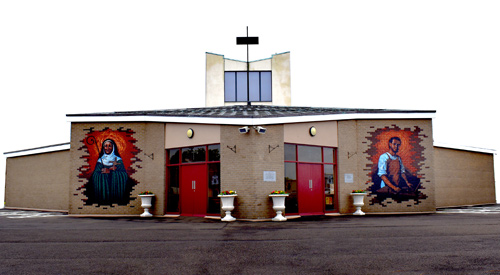February 1st is St Brigid’s Day, the feast day of Ireland’s Patroness Saint, St Brigid. In pre-Christian times February 1st was also known as Imbolc or Imbolg, the ancient festival marking the beginning of spring. February 1st and the Imbolc celebration marked the halfway point between the winter solstice (Yule) and the spring equinox (Ostara).

The goddess Brigid was considered one of the most powerful Celtic gods, the daughter of the Dagda, the oldest god in the Celtic pantheon Tuatha du Danann.
Historically, the traditions were widely observed throughout Ireland, with Imbolc one of four ancient seasonal festivals, together with the other three; Beltane, Lughnasadh and Samhain.
Many scholars opine that when Ireland converted to Christianity, it was hard to convince people to get rid of their old gods, thus the goddess Brigid was adopted into Christianity as St Brigid.
It is interesting to note that ‘Imbolg‘ derives from the old Irish word ‘imbolc’ meaning “in the belly”, indicating that the seeds of spring were beginning to stir in the belly of Mother Earth. Therefore one could be forgiven for wondering if there could be an association with the word Imbolc and the numerous Sheela na Gig’s located across Co. Tipperary and indeed Ireland; which we now hope those involved in Tourism promotion will take on board. View Here.
Since 2023, St Brigid’s Day has become an annual public holiday here in the Republic of Ireland and so we wish all our readers a very Happy St Brigid’s Day.

Leave a Reply